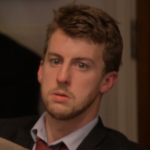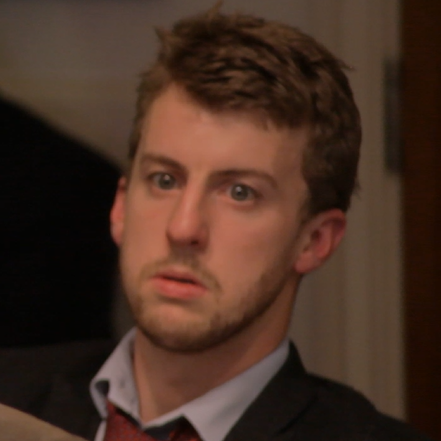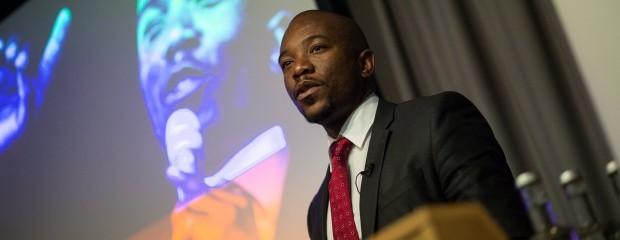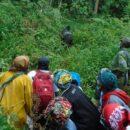Nigeria Forum: Boko Haram’s message is “simple, linear and appealing”, the solutions are not – By Magnus Taylor

 Fatima Akilu’s office is located within a smart new building near the Nigeria’s National Assembly in the capita city Abuja. The building houses the Office of the National Security Adviser (ONSA) which is drawing up the Federal Government’s non-military strategy for tackling the Boko Haram insurgency in the country’s north east. Akilu, a softly-spoken academic with international experience, has been brought in to design and run the country’s first ever Countering Violent Extremism Programme. This is a sophisticated and research-based attempt to understand and address the causes and effects of the insurgency.
Fatima Akilu’s office is located within a smart new building near the Nigeria’s National Assembly in the capita city Abuja. The building houses the Office of the National Security Adviser (ONSA) which is drawing up the Federal Government’s non-military strategy for tackling the Boko Haram insurgency in the country’s north east. Akilu, a softly-spoken academic with international experience, has been brought in to design and run the country’s first ever Countering Violent Extremism Programme. This is a sophisticated and research-based attempt to understand and address the causes and effects of the insurgency.
It is clearly needed. Whilst I have been in Nigeria there have been three large Boko Haram attributed bombings in the north, the last of which targeted the Central Mosque in Kano, and was coupled with the bombers opening-fire into the crowd of worshippers before they were lynched and their bodies burned. The final death toll stands at over one hundred. The Emir of Kano and former Governor of the Central Bank, Mallam Sanusi, vowed that the people of Kano “will not be intimidated.”
Last week two female suicide bombers (a phenomenon Elizabeth Pearson covers for us here ) attacked a market in Maiduguri, the capital of Borno state, killing sixteen. Suicide attacks of this nature may indicate two things; that the perpetrators were highly motivated in their intentions – something that can only have been achieved by intensive ideological acculturation – or they were unaware of what they were being asked to do.
Over the past two days the insurgents have pushed towards the capitals of Borno and Yobe; two of the three states that were until recently under a state of emergency (officially it lapsed on November 28th). The national newspaper This Day yesterday led with the dramatic headline; “˜Damaturu and Maiduguri Under Boko Haram Siege’.
Nigeria is facing an entrenched and many-faceted crisis. Even in Lagos, which is 1400 km by road from Damaturu, the existential threat to the country is palpable. There is a strong sense among the population that Nigeria is “˜one country’ and that the north east is being abandoned to the terrorists.
Fatima Akilu’s CVE programme is one of the few positive examples of Federal Government action against the insurgents. But the ONSA’s own literature readily admits that they were caught unprepared by the swift rise of the group:
“The initial presentation of this threat was markedly different from previous threats we had encountered. This knowledge gap led us to apply old solutions to new problems, complicating the conflict environment further.”
The inference here is that the deployment of police and military-focused “˜solutions’, most obviously in 2009 when Boko Haram did not pose nearly the same level of danger as it does today, was a mistake. The killing of the movement’s founder, Mohammed Yusuf, and incarceration of hundreds of other BH members, simply served to radicalise many more people. Two years later the movement came back stronger than before and led by wilder men such as the “˜un-killable’ Abubakar Shekau.
The ONSA document describes how the group “has successfully recruited members from amongst the general public by targeting disaffected youths with limited knowledge of islam and vulnerable muslims searching for meaning…Charismatic extremist leaders manipulate religious texts as justification for an alternative movement that challenges the state.”
Akilu puts this another way: “the Boko Haram message is simple, linear and appealing.” This is particularly true for young people who, having grown up during, or soon after, Nigeria’s most recent period of military rule, are the products of an education system that did not teach them to be logical or critical thinkers.
According to Akilu, Boko Haram’s membership is made up from a top strata of ideologically committed adults in their 30s and 40s, followed by much younger “˜foot soldiers’ in their teens and early 20s. Older people generally had an education that more effectively encouraged critical thinking. They are also more settled, with families to support and livelihoods, however disrupted, to maintain. More secure adults do not join Boko Haram.
Akilu provides a compelling argument that Nigeria is tackling a crisis of governance, expressed in the form of a revolutionary religious war. Far from being a movement based upon a radical interpretation of the Koran, Boko Haram takes its references from other “political islamic actors”, whose anti-western sentiments have combined with a particularly modern phenomenon; a crisis of governance within a state whose wealth has been misappropriated by generations of Nigerian politicians.
There may be a sliver of hope for the Federal government. As the ONSA’s literature describes; “A window of opportunity [now] exists because communities are already indicating a preference for peace and stability, having realised the danger that violent extremism presents to all facets of society.”
In other words, the best solution to the insurgency could be that local people reject the violence and disruption that Boko Haram has enforced on their lives. The group cannot operate without recruits, so limiting the number of individuals willing to join through grass-roots programmes such as working with “˜moderate’ local imams to counter radical narratives, has potential.
There is precedence for this too: the Somali islamist group Al Shabaab alienated itself from its own population when it prevented food aid from reaching starving people during the 2011 famine. But, as with Al Shabaab, local rejection of a terrorist movement will only weaken, not destroy it. That can only be done by a holistic programme which tackles the roots of the insurgency (as the ONSA is attempting) and improving the security environment in the affected areas through a massive deployment of well-resourced soldiers and police. Evidence from the last week suggests the Federal Government is yet achieve this latter requirement.
Solutions such as the embedding of peace and critical thinking within the curriculum are far-sighted and founded on real research. However, the far-sighted nature of the solutions is precisely why it is difficult to particularly optimistic. Nothing the ONSA is doing now will be rolled out full-scale until 2016 (the programme is only at a pilot stage). As Boko Haram once again threatens population centres in the north east this doesn’t feel nearly soon enough.
Magnus Taylor is Editor of African Arguments.






Promoting within both young and old critical prescriptive reflective instruments in which to ground decision making is education at the normative ideal which in countries comprised of extremes in religious beliefs is most essential crucial. Alas, due to corruption and other related malfeasance relating to governance in these countries fail to dedicate resources to promote open critical reflective considered thinking which encourages the pernicious side effects of non intellectual, non rational fundamentalism which is now roiling many of these nations Nigeria included as this lack of rigorous intellectual bulwark without education will only encourage these radical misguided adherents to advancing all that is corrosive to the fostering of a stable pluralist society.
The Magic of Education and Rule of Law
I consider the University embedded within civil state sanctioned assisted Education along with the Civil Institutions which promote and enhance Education as an absolute essential requirement if a nation state is to flourish in a manner prescriptive, prosperous and robust within an ethos of respectful political public pluralism. In a report developed by the World Bank “Where Is the Wealth of Nations”, the World Bank attempts to demarcate how different kinds of capital contribute to a nation’s economic social development. The World Bank micro economic development analysts started with the common familiar sources of a nation’s capital:—–natural resources such as gas, oil, minerals, forests, cropland products and ‘built capital’ such as machinery, infrastructure, cities. However, these economic analysts discovered that these two fundamental sources of tangible capital accounted for only 20 – 40 percent of a nations gross wealth. The vast majority of a nations wealth is derived from the ‘intangible’ capital of civic civil social institutions such as found in education, governance, justice systems which when robust and open in process and procedure add immeasurably to the continued ongoing wealth of a nation ensuring a high degree of human capital productivity entailing civic civil stability.
For me this makes intuitive logic sense in terms of promoting and enhancing education. A nation privileged with rich natural resources and substantial equipment and social civic infrastructure with citizens who cannot read and write; or a nation bereft of engineers or advanced expertise for technical innovation is simply not going to flourish and prosper at the same pace as the country with institutions that educate and train a highly sophisticated labour force. This explains my reasoned emphasis on education for those who care about economic social development, poverty alleviation, or empowerment of the girl-child. Education is critical. Educational Institutions are a major factor in accounting for a nations intangible social civic capital. An increase in the value of a nation’s educational institutions will dramatically increase the value of the nation’s intangible social civic capital. This is the magic of education in creating wealth and lifting a nation out of poverty.
Education without normative rule of law process and procedure will founder as strong normative rule of law process and procedure is the most important requirement needed if a nation is to continue as being an open strong tolerant state. David Brooks of the New York Times drilled with clear asperity this salient consideration.
“You can cram all the nongovernmental organizations you want into a country, but if there is no rule of law and if the ruling class is predatory then your achievements won’t add up to much…….there’s only so much good you can do unless you are willing to confront corruption, venality, and disorder head on”.
Lord Paddy Ashdown, former UN High Representative in Bosnia-Herzegovina distills my conclusion in this pity statement—–“In hindsight, we should have put the establishment of the rule of law first, for everything else depends on it: a functioning economy, a free and fair political system, the development of civil society, public confidence in police and the courts”.